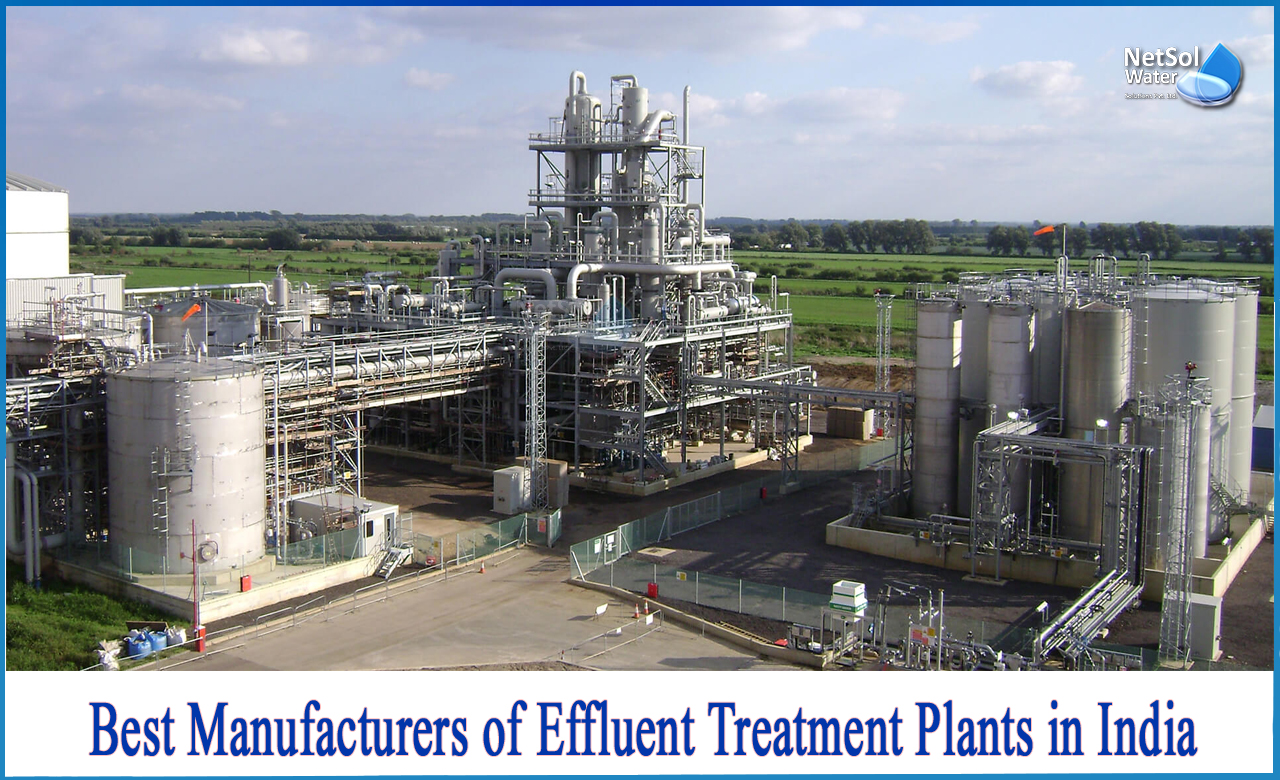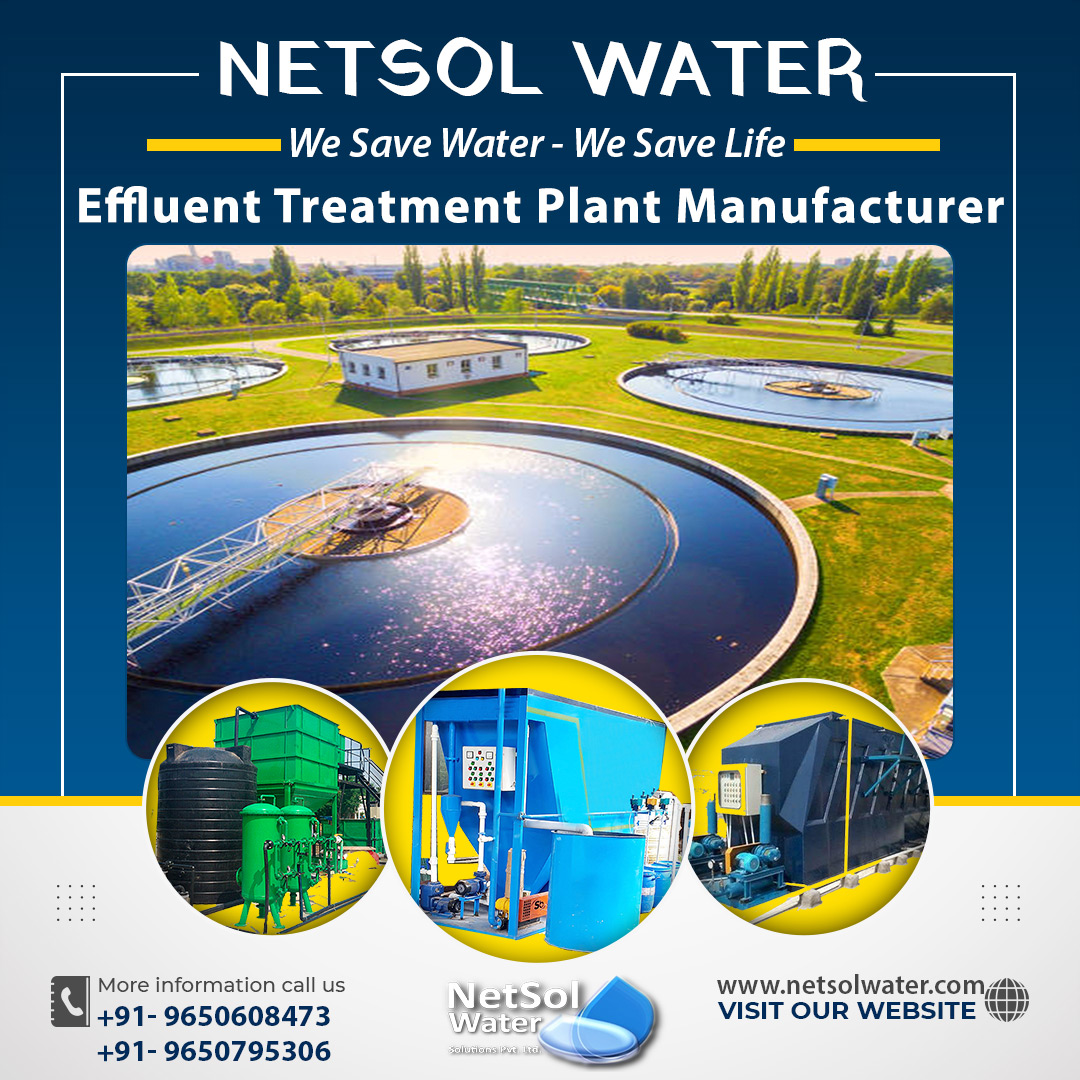Who is the Best Manufacturers of ETP Plants in India?
The Environmental consequences of industrial use must be recognized, not only on the land but also in our Environment through water consumption and garbage disposal!
Industrial wastewater contributes to groundwater contamination and other environmental issues. It depletes groundwater nutrients while increasing carbon dioxide levels in the atmosphere. Furthermore, it causes chemical drift, which raises the quantities of dangerous compounds in the soil, where they can disrupt biological life and negatively affect agricultural operations. The adoption of cleaner manufacturing technologies and waste reduction techniques is gaining popularity as a means of reducing industrial pollutant discharge. Effluent Treatment Plants (ETPs) are one of the wastewater treatment options available to small and medium-sized industries.As a result, industrial wastewater treatment is a global requirement.
The importance of Effluent Treatment Plants: Then and Now!
Effluent treatment plants were not always required. In the past, bacteria and other creatures present in streams would naturally purify sewage by breaking it down into harmless by-products. However, bacteria and other creatures were unable to keep up with the growth in population and sewage production. Wastewater is now sent to effluent treatment plants, many of which employ the same natural purification process to purify water.The majority of wastewater treatment plants prepare wastewater for reuse in two stages: primary and secondary.
What is an effluent?
The discharge of wastewater or gas into a natural body of water from a facility such as a sewage treatment plant, sewer pipe, industrial wastewater treatment plant, or industrial outfall is referred to as an effluent.
What is an effluent treatment plant?
Effluent Treatment Plants (ETPs) are one sort of wastewater treatment systems that are specifically developed to purify industrial wastewater for re-use, with the goal of releasing clean water into the environment and save the water resources from the detrimental effects of effluent. Depending on the industry, industrial effluents contain a variety of elements. Our ETPs operate on many levels and employs a variety of physical, chemical, biological, and membrane processes to treat wastewater from diverse industrial sectors such as chemicals, medications, pharmaceuticals, refineries, dairy, ready mix factories, and textiles, among others.
Why are enterprises required to establish effluent treatment plants?
Effluent is produced in a variety of production businesses, including textiles, medicines and chemicals, tanneries, and so on. Because contaminated water contains both dangerous and non-toxic substances, it cannot be discharged without treatment. Its release may contaminate existing clean water and have an impact on the ecosystem. As a result, ETPs are now implemented in the majority of manufacturing businesses.
What do ETPs remove?
ETPs are used to remove excessive levels of organic compounds, debris, dirt, grit, pollutants, hazardous and non-toxic contaminants, and polymers, among other things, from industrial effluent. For chemical processing and effluent treatment, ETP facilities employ evaporation and drying technologies, as well as additional auxiliary techniques such as centrifuging, filtering, etc.
Netsol Water! We assist in the provision of the best wastewater treatment plants in India.
We are a world-class water and wastewater management firm that offers turnkey solutions for water treatment, industrial wastewater treatment, sewage treatment, desalination, and Zero Liquid Discharge (ZLD) solutions. We have experience creating and treating difficult-to-treat wastewater at a low cost.Our competence is in bringing our teams together to ensure a smooth project implementation. We seek to incorporate innovative technology, lower our carbon footprint, conserve energy, and offer a cutting-edge wastewater treatment system.
Our effluent treatment plant is a cutting-edge concept that can aid in the removal of contaminants from industrial waste. Industrial wastewater pre-treatment seeks to avoid dangerous substances from interfering with biological processes, which is why we use pre-treatment solutions in our wastewater treatment plants.We are devoted to giving the best value for your money by providing the most appropriate solutions based on your specifications and requirements.
Our ETPs undergo several processes which include;
Stage 1: Initial Treatment
Preliminary wastewater effluent treatment includes techniques such as –
- The filtering of effluent.
- Process of removing oil and grease.
- The pH correction procedure.
Stage 2: Primary Care
Primary wastewater treatment includes techniques such as –
- The chemical treatment procedure.
- Colour, suspended particles, and related organic matter is treated using coagulation and flocculation.
- Process for removing oil, grease, and fat.
- Inorganic treatment method for removing hardness and other contaminants from wastewater.
- The treatment of heavy metals.
Stage 3: Secondary Care
Secondary wastewater treatment includes methods such as biological treatment for dissolved and suspended organic pollutants.
- Secondary treatment processes and kinds that are commonly used are Activated Sludge, Extended Aeration, MBBR, SAFF, MBR, UASB, Anaerobic filter, anaerobicdigester process, and so on.
Stage 4: Tertiary Care
Tertiary wastewater treatment includes techniques such as –
- Reverse Osmosis, depth filtration, ultrafiltration, resin columns, and other methods are used to polish effluent contaminants.
- It also includes sophisticated wastewater treatment methods such as tertiary MBR, Ozonation, UV, and others for removing residues of organic compounds, turbidity, viruses, and SDI.
Stage 5: Recycling Treatment
Wastewater recycling is a difficult and crucial treatment stage, mostly for the removal of inorganic components in the wastewater.
- It employs techniques like RO, NF, EDR, and EDI to further treat the ETP-treated water, eliminating the majority of inorganic compounds and making it reusable for a variety of industrial uses.
Advantages of Netsol’s Effluent Treatment Plants
- To clean and recycle industrial effluent for reuse in the future.
- Reduce the consumption of fresh/potable water in business.
- Reduce the amount of money spent on water procurement or operational production expenses.
- Comply with the Government's requirements for the emission or discharge of environmental toxins from various businesses to avoid harsh fines.
- To keep the environment clean and contribute to long-term growth.
Applications of Netsol’s Effluent Treatment Plants
(1) Extensive treatment at a hotel, restaurant, sanatorium, hospital, school, residences, and commercial facilities;
(2) Efficient treatment of residence communities, villa districts, villages, and towns;
(3) Efficient station, airport, seaport, and dock treatment;
(4) Factory, mine, army, and beauty spot efficacious therapy, and much more.
When it comes to wastewater, the site's sewer/drainage system, and the pollutants with their associated limit values that must be reached, is a significant component of the manufacturing process. Furthermore, the ETP helps to reduce the number of discharge locations in an industrial estate, allowing environmental regulatory authorities to more effectively enforce pollution reduction and environmental improvements. The cleaned industrial wastewater (or effluent) can be reused or released into a sanitary sewer or surface water in the environment.
Wastewater treatment is a complicated procedure that necessitates the use of high-tech, dependable equipment’s. Netsol is happy to provide wastewater treatment facilities with the technology and purification systems the industries require to filter, clean, and disinfect water before it is returned to local waterways.




